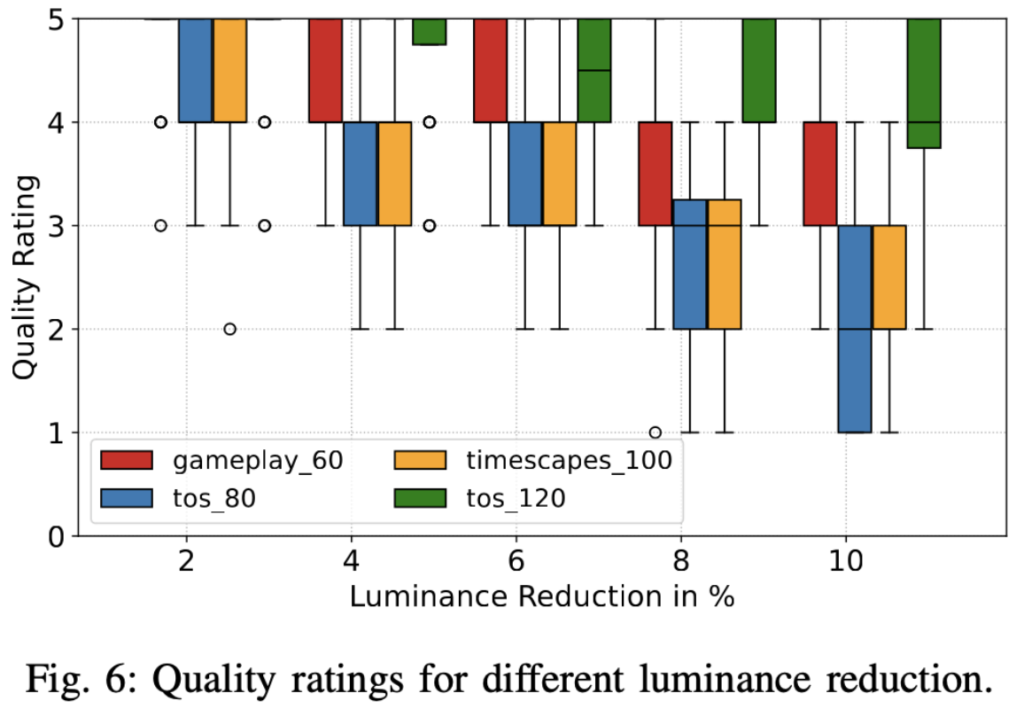Toward the Impact of Video Luminance on the Energy Consumption of OLED TVs and Viewer Perception
The 17th IEEE Green Technologies (GREENTECH) Conference
26 – 28 March 2025, Wichita, Kansas, USA
[PDF]
Authors: Minh Nguyen, Raphael Koch, Görkem Güclü, Martin Lasak, Robert Seeliger, Stefan Arbanowski, Stephan Steglich (Fraunhofer FOKUS, Berlin, Germany)
Abstract: Video streaming services have become integral to modern digital experiences, yet they present a challenge in balancing perceptual quality with energy efficiency. The climate crisis has underscored the environmental effects of information and communication technologies (ICT), emphasizing the necessity for eco-friendly solutions to minimize ICT’s carbon emissions. With video streaming leading Internet traffic, research in this area is more crucial than ever.

This paper presents a study on the impact of luminance changes in video streaming on the perceptual quality experienced by end users and the associated energy consumption. Various levels of luminance reduction are investigated in different video bitrates and video characteristics. We also conducted a subjective test with 28 participants to understand how much the video’s luminance can be reduced without degrading the visual quality. The results show the trade-off between visual quality and energy efficiency in video luminance reduction. We found that the optimized level of luminance reduction depends on the video content. Some specific videos can be reduced by 10% of luminance to save up to 14% of energy consumption while maintaining an acceptable visual quality. Some other videos should be reduced by only 4%.
Keywords: Quality of Experience, Subjective Quality Metrics, Green Streaming, Energy Consumption, Subjective Test.